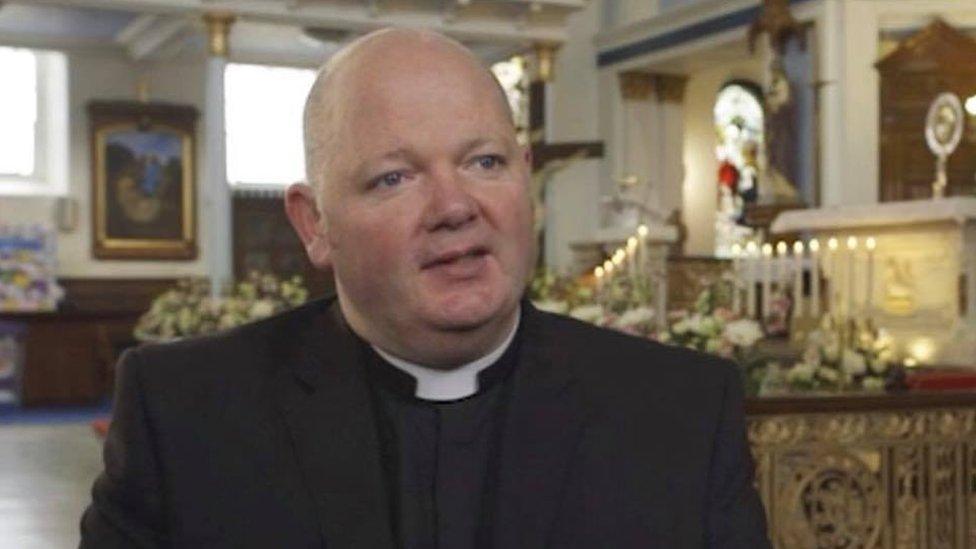Police call for action on sectarianism ahead of Orange walks
- Published
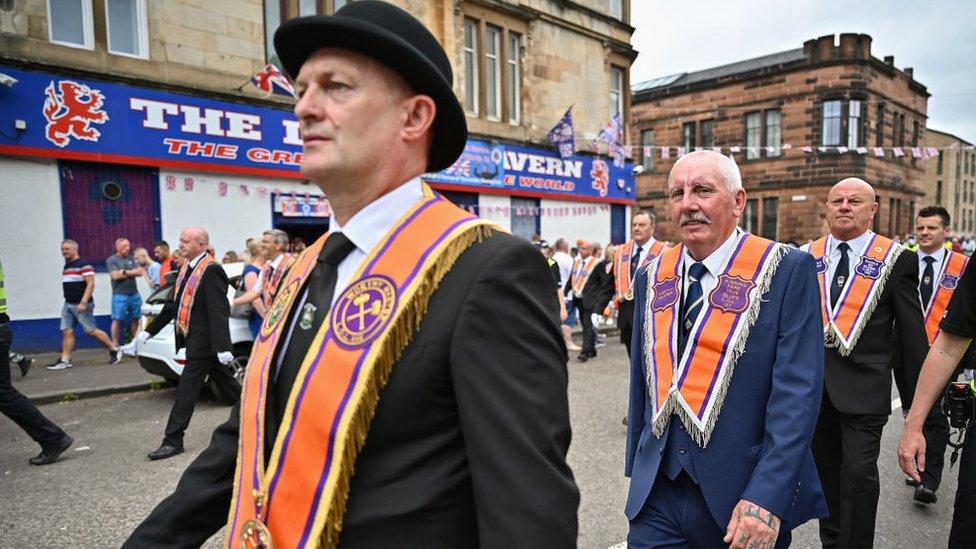
The Orange Order said its members wanted to celebrate their heritage
One of Scotland's top police officers has said it is time the country dealt with sectarianism.
Deputy Chief Constable Will Kerr, who worked in Northern Ireland for 27 years, spoke ahead of a series of Orange walks in Glasgow on Saturday.
About 5,000 people are expected to take part in the marches.
The Orange Order said it does not believe there is a problem with sectarianism in Scotland and the group was not anti-Catholic.
Its leader said the processions were a celebration of the group's heritage.
There have been a number of high-profile incidents around parades by Protestant Loyal Orders and Irish Republican demonstrations in Glasgow in recent years.
Speaking to BBC Scotland, Deputy Chief Constable Kerr said: "[Sectarianism] isn't just a problem that you see the symptoms of around Orange Order parades - this is a problem that affects both Catholic and Protestant communities, it affects many other parts of Scotland than just Glasgow. It's not unique to the Orange Order in Glasgow in any way, shape or form."
He said 800 officers would police Saturday's processions, and that those attending had a right to celebrate their culture but urged all sides to behave peacefully.
Asked whether there was a problem with sectarianism in Scotland, he said: "Sectarianism is a problem in Scotland and I've been surprised at the level of it in some parts. I say that having policed Belfast for 27 years."
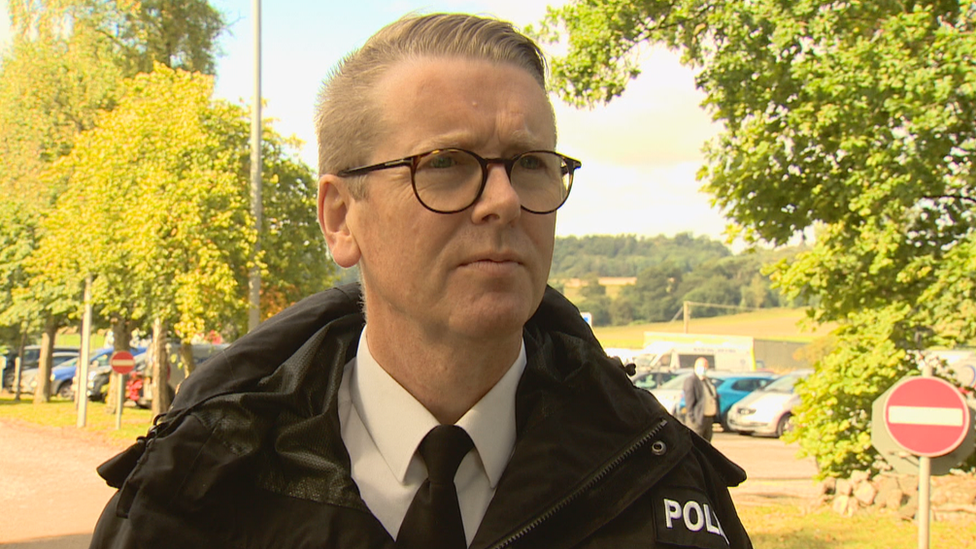
Deputy Chief Constable Will Kerr worked for the police in Belfast for 27 years before joining Police Scotland
Deputy Chief Constable Kerr added that a lot of time had been spent on how to define sectarianism, rather than how to deal with it.
"There's a need to move beyond defining it and talking about it and doing something about it," he said.
There is no "easy answer" to the "generational" problem, he added.
"It needs a joined-up civic, sustainable solution".
He said the role of the police was to intervene when behaviour became potentially criminal.
"All we're doing is symptom management, picking up at the long end of civic failings that have failed to address this issue over the last couple of generations," he said.
'Celebrating culture and history'
Jim McHarg, Grand Master of the Grand Orange Lodge of Scotland, said the organisation was marching as a celebration of its culture and heritage.
"We as an organisation have always believed in civil religious liberty for all people and that includes us - we are entitled to be there," he added.
Mr McHarg said he felt that the organisation had to "justify" its right to be out there.
"For 200 years, there's been parades in this city with very, very little trouble, if that's the right terminology," he added.
He said the Orange Order was "most certainly" not anti-Catholic. "We are not an organisation that is anti-anything," he said.
Mr McHarg added: "I don't see sectarianism in this country. I would say there's a form of bigotry, you might see 90-minute bigotry at football matches or whatever."
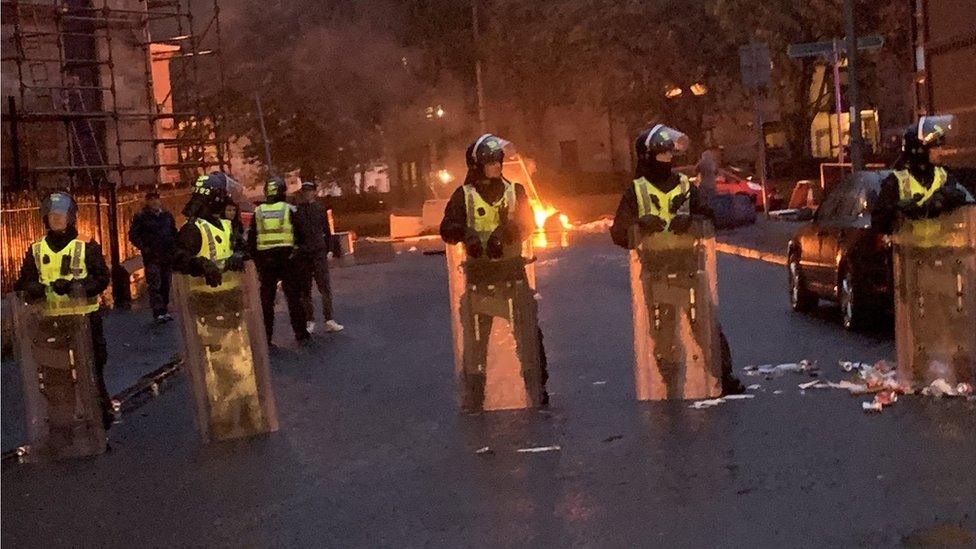
Riot police were called to deal with "significant disorder" surrounding an Irish Unity march in Glasgow in 2019
Recent incidents linked to the marches include an attack on a Catholic priest by a follower of an Orange parade in 2018.
Violent protests at a Republican march in 2019 led to a number of parades being cancelled by Glasgow City Council.
Last summer's parades did not go ahead as a result of the Covid pandemic. Saturday's walks were rescheduled from July, as they were not permitted then under the coronavirus rules.
There have also been outbreaks of violence at some events related to football.
A number of people were assaulted in May after thousands of Rangers fans took to the streets of Glasgow - despite the Covid restrictions - when the club won the Scottish Premiership.
The first minister criticised the "sectarian" scenes as "utterly unacceptable", saying that "vile anti-Catholic prejudice" was on display.
Earlier this month, a number fans were charged after footage emerged online of fans singing a sectarian song ahead of an Old Firm game.
Alternative route 'more disruptive'
Ronnie Convery, of the Archdiocese of Glasgow, said sectarianism was still a "cancer" in Scottish society, pointing to the "violent scenes" in Glasgow earlier this year.
He said the Catholic Church acknowledged people had a legal right to march through the city. However, he asked that the parades were timed and go on a route that avoided causing "fear and alarm" in the Catholic community.
Glasgow City Council has the power to alter a parade's route or timing but has opted not to do so.
A spokesman for the council said the parades would be "more disruptive to the life of the city" if they took an alternative route.
This weekend, vigils will be held outside of three Catholic churches which the parades will pass.
It emerged last summer that the Scottish government had commissioned a civic mediation company in an attempt to ease tensions over loyalist parades in Glasgow.
Related topics
- Published3 July 2020
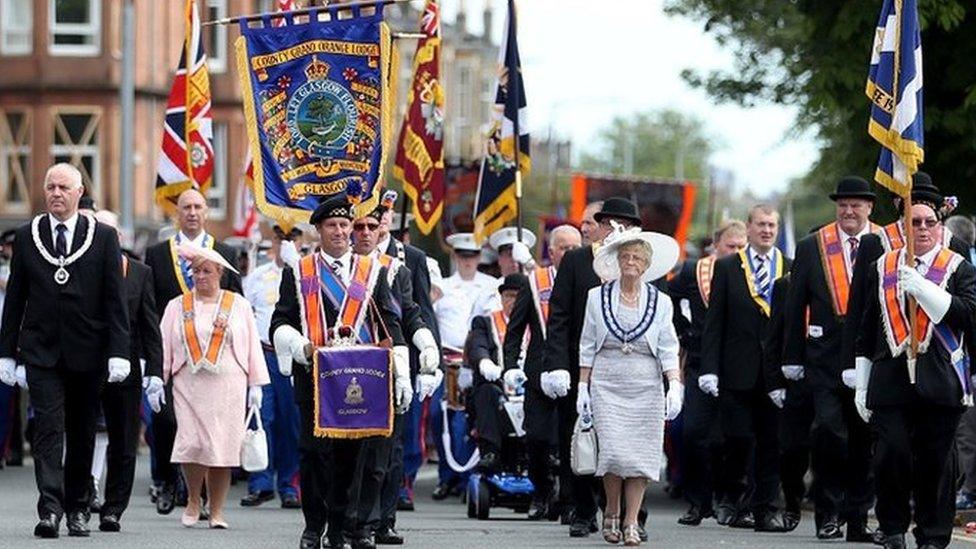
- Published31 August 2019
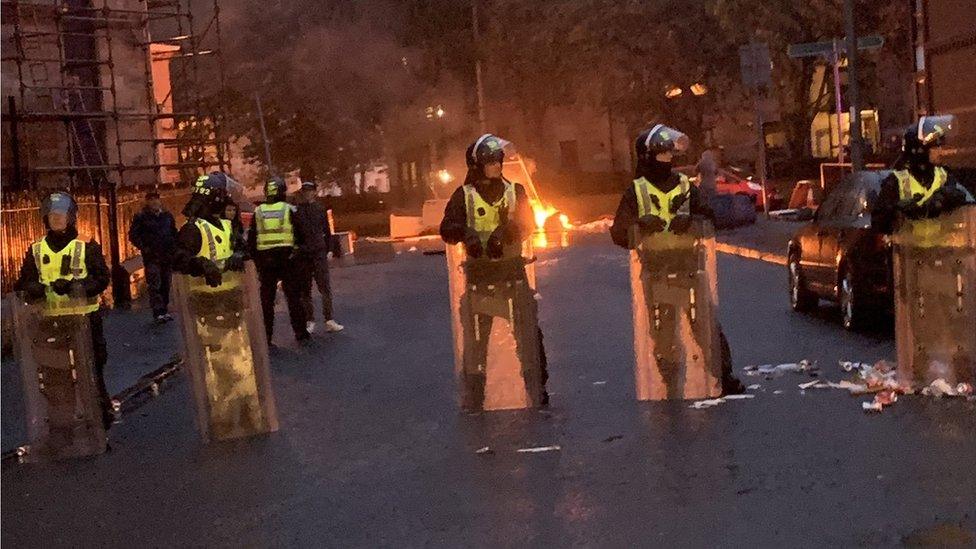
- Published27 February 2019
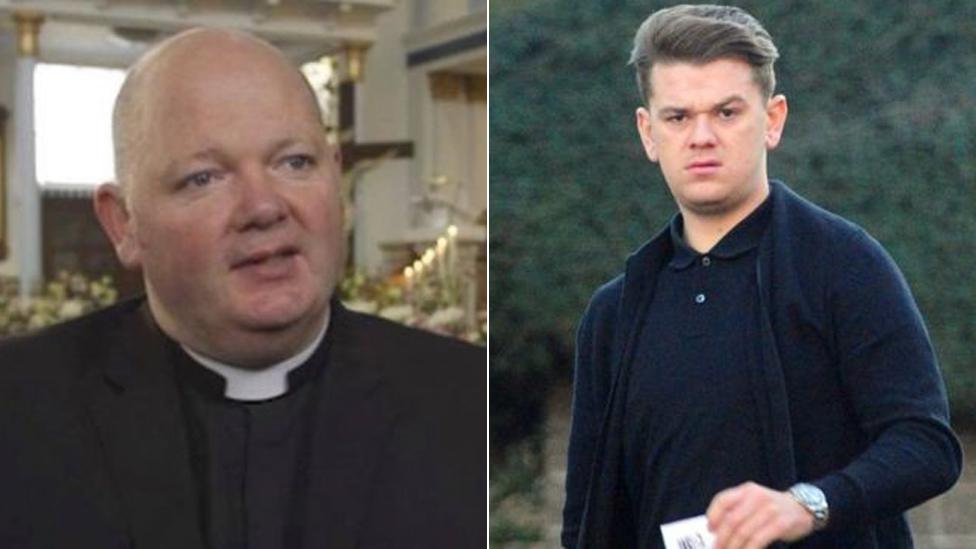
- Published9 July 2018
